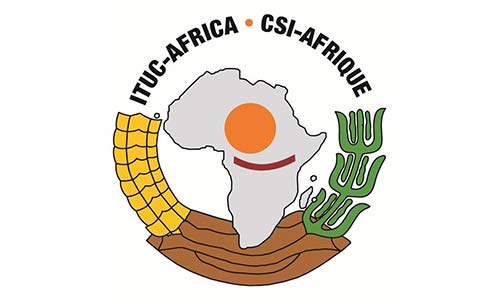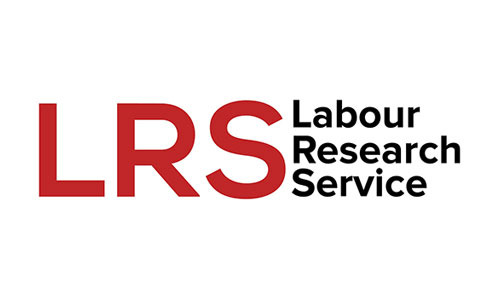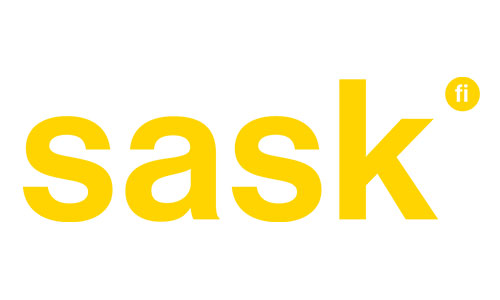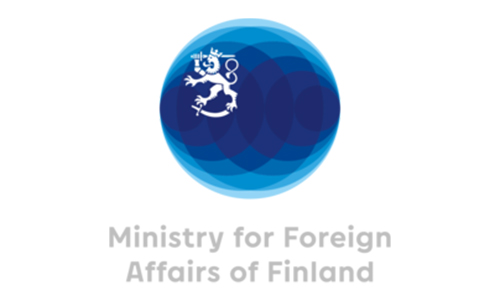Since the dawn of Africa’s independence from colonial rule, the continent has grappled with an insidious foe: unsustainable public debt. Ensnared within the intricate web of historical legacies, economic fragilities, and governance challenges, Africa continuously strives for liberation from this relentless debt burden. The Heavily Indebted Poor Country Initiative (HIPC) and the Multilateral Debt Relief Initiative (MDRI) emerged as beacons of hope in the late 1990s, promising reprieve from the suffocating grip of sovereign debt. Yet, despite their initial successes in reducing debt burdens, these endeavours failed to address the underlying structural issues, leaving African nations teetering on the precipice of despair once more.
In the wake of recent global crises, including the lingering fallout of the Covid-19 pandemic and the tumultuous Russia-Ukraine conflict, African countries find themselves plunged deeper into fiscal turmoil. Macro-economic instability pervades, forcing many to seek refuge in the arms of the International Monetary Fund (IMF), leveraging the G20 Common Framework for Debt Treatments. However, a harsh reality confronts African countries: the exorbitant interest rates exacted upon borrowed funds eclipse those of their global counterparts, hindering productivity growth and perpetuating a cycle of economic disenfranchisement.
In November, the Africa Regional Organisation of the International Trade Union Confederation (ITUC-Africa) launched its flagship campaign to combat Africa’s sovereign debt crisis, which reached US$1.8 trillion in 2022, amounting to almost 29 per cent of the continent’s GDP according to the United Nations Conference on Trade and Development (UNCTAD).
In an empirical study conducted by ITUC-Africa’s Africa Labour Research and Education Institute (ALREI) on the issue of sovereign debt, a number of issues unfold.
High debt levels significantly reduce public investment in healthcare, education, and social protection in African countries – ALREI study.
The study reveals that the high level of debt relative to the size of most economies in Africa is associated with reduced public investment in healthcare, education, and social protection at statistically significant levels.
This has triggered liquidity challenges (difficulties in meeting their short-term financial obligations to creditors) for many countries (such as Ghana, Kenya, Zambia, Chad, Nigeria and Ethiopia) and solvency risks (sustained difficulties in principal debt repayments) for other countries (including Ghana, Zambia and Chad), which have necessitated both voluntary and IMF-mandated debt restructuring on the continent. The report also affirms the high proportion of expensive domestic debt contributing to the imposing public debt overhang; and that any effort to comprehensively restructure debt on the continent must respond to the rising, more expensive, short-dated domestic debt.
At any level, debt has both direct and indirect implications for the welfare of workers, as underlined in another report, to be published by the Brussels-headquartered ITUC later this April on the impact of growing global debt on workers’ rights around the world. For instance, external debt accumulation has been shown to be correlated with job losses, public sector employment and wage freezes, and currency depreciation, which cuts real wages for all workers. It is therefore imperative for organised labour to act against public debt. The report recommends sequenced and integrated debt campaigns and advocacy in promoting the responsible use of debt on the African continent. This requires legal and institutional reforms to ensure debt works for sustainable development.
The report also recommends that ITUC-Africa collaborates and forges alliances with other like-minded organisations to champion reforms in the global financial system, including the dominance of the three rating agencies (S&P, Fitch, and Moody’s control 95 per cent of the market share) as well as offering alternatives to IMF-inspired austerity measures that disproportionately cuts expenditure on health, education, and social protection to enable African countries to meet their external debt obligations.
ITUC-Africa and its affiliate trade unions should endeavour to constantly monitor the precursors to debt crisis such as rapid build-up of external debt so that they can act to prevent them from reaching crisis level.
In summation, African governments must adopt progressive and efficient tax policies to ramp up domestic revenue. Additionally, greater transparency and disclosure should underpin African countries’ debt management strategies.
Why trade unions should care about public debt
Understanding the implications of public debt is essential for ITUC-Africa and its affiliated trade unions, as it holds profound significance for the welfare of workers across the continent. Recent trends have underscored the perilous link between escalating public debt and economic instability, with studies revealing a disturbing pattern: a significant rise in debt-to-GDP ratios often precedes economic crises in many African nations. Indeed, empirical evidence highlights that such crises invariably lead to heightened unemployment rates, particularly impacting younger workers and women, whose labour force participation is on the rise.
During these turbulent times, workers bear the brunt of adversity, grappling with mounting job insecurity, wage stagnation, reduced working hours, and mounting household debt burdens. Therefore, it is imperative for trade unions to closely monitor public debt levels, recognising their direct correlation with the well-being of workers.
Contrary to popular belief, debt itself is not inherently harmful; rather, it is the prudent management and utilisation of debt that warrants attention. Trade unions and coalitions possess a unique opportunity to influence debt policies, ensuring responsible borrowing practices and timely debt repayment. Moreover, proactive engagement is crucial in preempting debt-induced crises, allowing trade unions to identify early warning signs and advocate for protective measures to safeguard workers’ rights amidst financial turbulence. By actively countering the interests of finance and multinational corporations, trade unions serve as a vital voice, ensuring that workers are not left to shoulder the burdens of economic downturns alone. In this collaborative effort, trade unions play a pivotal role in advocating for equitable policy responses and fostering a fairer, more resilient economic landscape for workers and communities alike.
Policy recommendations
To reverse Africa’s debt burden, ITUC-Africa suggests the following:
1. Strengthen domestic resource mobilisation and prudent debt management
African countries must prioritise enhancing domestic resource mobilisation to tackle the rising debt burden. Governments should broaden the tax base by formalising informal sector economies, ensuring a fairer distribution of tax burdens, and combatting corruption in revenue collection. Moreover, prudent debt management practices, including transparent borrowing terms and rigorous project evaluation, are essential to prevent unsustainable debt accumulation. Trade unions can contribute by advocating for formalisation, scrutinising borrowing agreements, and monitoring debt trajectories to influence early policy interventions.
2. Promote inclusive social spending
Governments should prioritise inclusive social spending, especially in critical sectors like health and education. Despite high debt service obligations, adequate funding for these sectors is crucial for citizens’ well-being and labour market outcomes. Trade unions can collaborate with governments to ensure budgetary allocations prioritise workers’ needs and advocate for evidence-based policymaking to optimise public spending effectiveness.
3. Implement targeted debt relief programmes
Policymakers should explore targeted debt relief programs to alleviate the burden of debt servicing, particularly on vulnerable populations. Negotiating favorable terms with creditors, extending repayment periods, and debt restructuring may be necessary measures. Trade unions should actively engage in debt negotiations to safeguard workers’ interests and resist harmful austerity measures that jeopardise labour rights and employment security.
4. Enhance transparency and public accountability
Governments must prioritise transparency and public accountability in managing public finances to foster citizen participation and trust. Accessible information on debt utilisation and its impact on social services enables informed decision-making. Trade unions can advocate for greater transparency and hold governments accountable for fiscal decisions, ensuring responsible management of public resources.
5. Gender-sensitive labour market interventions
Addressing gender disparities exacerbated by excessive borrowing is crucial. Policymakers should implement gender-sensitive labour market interventions to mitigate the disproportionate impact of debt on women and highly educated individuals. Trade unions can advocate for policies promoting gender equality, such as equal pay legislation and initiatives to address workplace discrimination, to ensure inclusive economic growth.
What more can trade unions do?
Unions play a pivotal role in holding governments accountable, advocating for evidence-based policy alternatives, and engaging with global financial institutions to promote responsible debt management.
Trade unions must lead advocacy efforts through a multifaceted approach, leveraging strategic partnerships, evidence-based communication, and grassroots mobilisation. Goals include increasing public awareness of debt’s socio-economic impact, influencing policy changes, and building coalitions for collective action. Key messages should emphasise debt transparency, inclusive social spending, public accountability, and gender equality. Trade unions can contribute by engaging multilateral institutions, forming strategic partnerships, hosting collaborative events, and advocating for gender-sensitive policies.
Trade unions play a pivotal role in holding governments accountable, advocating for evidence-based policy alternatives, and engaging with global financial institutions to promote responsible debt management. Specific actions include engaging in multilateral reform efforts, fostering partnerships, promoting public accountability, and amplifying the gender dimension of the debt crisis. By strategically mobilising resources and leveraging their collective voice, trade unions can drive positive change and mitigate the adverse impacts of excessive debt on workers and communities across Africa.
Full report: Africa’s Continuing Sovereign Debt Crisis: What Can trade Unions Do?
Related content
- COSATU stands in solidarity with the workers and people of Kenya – calling for an end to economic exclusion, unjust taxation and global economic capture by IMF/WB
- ITUC-Africa’s letter to President William Ruto – on protests against the Financial Bill 2024 and how they have been handled.
Dr Hod Anyigba
Hod Anyigba is the Executive Director of the Africa Labour Research and Education Institute (ALREI) of the Africa Regional Organisation of the International Trade Union Confederation (ITUC Africa).




